2011
 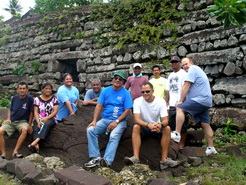 
|
Micronesian Sub-Regional IWRM Policy Workshop: 8th-12th November 2010, Pohnpei Island, Federated States of Micronesia This Sub-Regional IWRM Policy Workshop was convened to plan and prepare inputs to national consultative processes aimed at strengthening national coordination of water resource management and the development of comprehensive national water and sanitation policies. An important outcome of the meeting was the development of plans for the conduct of National Water Summits on World Water Day 2011 (22 March). Representatives from Palau, FSM, and RMI expressed their intention to deliver reports on the state of water resources and their management in their countries, as well as framework water policies at these National Water Summits. The full report of this meeting can be accessed by clicking here. |
|
 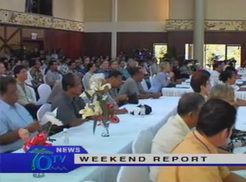 
|
Three Micronesian Countries to Hold National Water Summits on World Water Day, March 22, 2011.
Wednesday, March 16, 2011. Next Tuesday, March 22nd, three Micronesian countries, Palau, FSM and RMI, will celebrate World Water Day by taking steps to improve the way their water resources are managed. Each country will hold National Water Summits to discuss the pressing water issues they face, steps to improve these issues, and as a first step towards developing comprehensive National Water and Sanitation Policies. These countries have uniquely fragile water resources due to their small size, limited natural storage, competing land use and vulnerability to natural hazards. Urbanisation, rural development, growing populations, and increased demand from industry and agriculture is putting further pressure on their freshwater resources, in some cases threatening the long term viability of communities and islands. Added to all of these issues are the increasing adverse impacts of climate change.
Summit participants will include traditional leaders, community representatives, civil society, and representatives from all levels of government. The agendas include discussions on issues like:
It is anticipated that the National Water Summits will also provide important input at the regional and international level through a solid policy platform and investment plans for water. Summit outcomes are expected to inform the regional initiative to revise the Pacific Regional Action Plan on Sustainable Water Management.
More information on the summits and work in Micronesia can be found here: www.pacific-iwrm.org and http://www.pacificwater.org/pages.cfm/water-governance/micronesias-national-water-summits/
Contact: For media wanting more information or to set up interviews before Friday, March 18th please contact: Tiy Chung, Communications Specialist, SPC-SOPAC Water and Sanitation Programme, in Fiji, on: (mobile) +679 9987586 (Phone) +679 338 1377 (ext 290), email: tiy@sopac.org
From Monday, March 21 please contact the following people in each of the countries:
|
|
 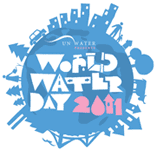 
|
WORKING TOGETHER FOR WATER MANAGEMENT IN PACIFIC URBAN COMMUNITIES BE WATER WISE, EVERY DROPS COUNTS
SUVA/FIJI 22 MARCH 2011- The international observance of World Water Day on 22 of March originated from the 1992 United Nations Conference on Environment and Development. More than 50 countries in the world will be taking part in the celebration of World Water Day with the main event to be held in Cape Town, South Africa on March 22.
This year the global theme for World Water Day is Water for Cities: Responding to the Urban Water Challenge. The objective of the WWD 2011 is to focus international attention on the impact of rapid urban population growth, industrialization and uncertainties caused by climate change, conflicts and natural disasters on urban water systems.
Today, globally one in two people in the planet live in a city. It is found that 93% of the urbanization occurs in poor or developing countries and nearly 40% of the world’s urban expansion is growing slums or informal settlements. Between 1990-2001 the world’s slums increased at a rate of 18 million people a year, and are projected to increase to 27 million new slums citizens per year between 2005-2020. Nearly 827.6 million people live in slums lacks adequate drinking water and sanitation facilities. This puts a lot of pressure on urban water management leading to poor management of urban water and waste. Solid waste disposal is a growing threat to health and the environment 1.
In the Pacific region, studies on the key population indicator for Pacific Island countries in 2010 carried out by Secretariat of the Pacific Community (SPC) shows that countries in the Micronesia region proves to have the highest percentage of its population living in urban areas followed by the Polynesian and Melanesian regions2 . For Fiji 93% of its urban population have access to improved water sources and 96% have accessed to improved sanitation. Compared to the situation in Kiribati where the access to improved drinking water sources for urban centres is only 77% and for improved sanitation is only 47%3 , Fiji has higher coverage figures. Other countries in the region such as Solomon Islands and Vanuatu have a slightly higher percentage of access to improved drinking water sources by their urban populations than Fiji.
For this year’s World Water Day the SOPAC Division is working with UN-HABITAT Pacific in promoting water conservation and water use and also looking at safe water storage and handling in urban Pacific communities. The educational materials developed include posters; stickers, a fact sheet and T-shirt this have been sent to 16 member countries in the region to help with the promoting of World Water Day. The materials developed are around the key messages of water conservation and safe drinking water.
In the Pacific, the theme of Working together for water management in Pacific urban communities will be the driving theme which has been put together by the SOPAC Division and UN-HABITAT. The emphasis is on working together to help better manage our water resources from challenges such as urban population growth, water waste, wastewater from storm run offs poor drainage and water leaks.
Also a highlight in the Pacific will be the National Water Summit in each of the Northern Pacific territories: Palau, Federated States of Micronesia and in the Marshall Islands. The summit is also schedule on March 22.
There will be a national event in some other countries including Samoa and Fiji. In Fiji, the event will be held at the Lower Civic Auditorium and invitations have been sent out to government departments, civil societies and also to schools around the greater Suva area. There will be performances by students related to water as well as displays on water resources.
ENDS
_________________________________________________________________________________________________________________________________________________ 1 www.unwater.org/worldwaterday/faqs.html
2 Source: Adapted from the SPC Pacific Island Population Estimates and Projections, September, 2010.
3 JMP 2010
Websites:
More information on World Water Day can be found here: http://www.unwater.org/worldwaterday/
Information on SOPAC’s water programme can be found here: http://www.pacificwater.org/
Contacts:
Tiy Chung, SOPAC Water Communications Advisor. Work: (+679) 338 1377 (ext 290), or mobile: (+679) 998 7586
Tasleem Hasan, Water Services Coordinator. Work: (+679) 338 1377 (ext 261),or mobile (+679) 996 2041
Sarah Mecartney, UN-HABITAT Programme Manager for the Pacific. Work: (+679) 3319669 (ext 105), or mobile (+679) 9085795
|
|
 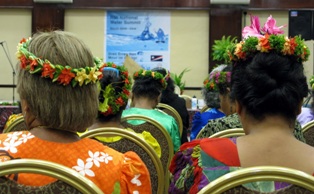 
|
The Marshall Islands Holds First Ever National Summit on Water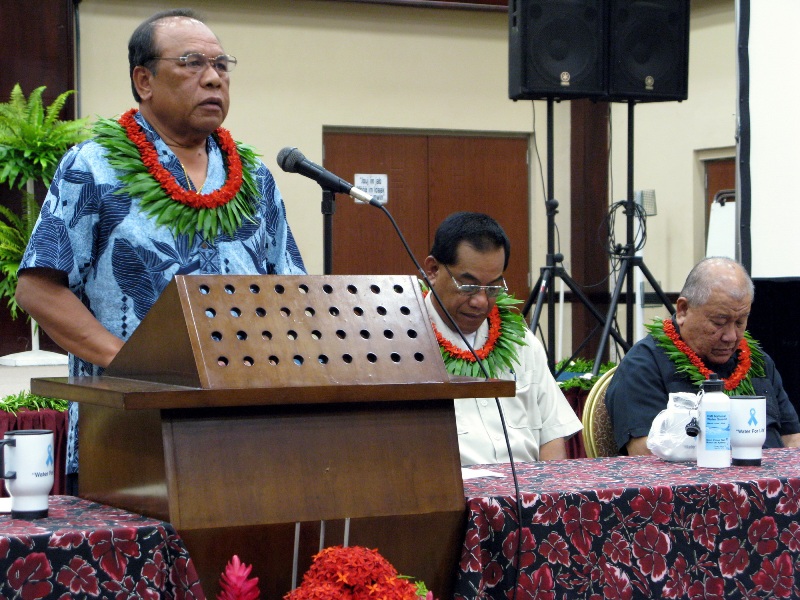 RMI President Jurelang Zedkaia National Water Summit Opening SpeechMajuro, Marshall Islands, March 22, 2010: Three hundred people gathered at the Republic of the Marshall Islands (RMI) International Convention Centre in Majuro today to celebrate World Water Day and to participate in RMI’s first ever National Water Summit.In opening the summit RMI’s President, Jurelang Zedkaia, said that most people were aware of the serious and immediate threats facing RMI and other low lying atolls and islands of the Pacific.
“Here in the RMI, water is not just a health issue, it is also an issue with major social, economic and security dimensions,” President Zedkaia said. “This summit is thus very important – both in terms of developing a framework for moving forward in this area but also in terms of developing the case and arguments for integrated water resource management as a key tool for addressing our national water needs.”
President Zedkaia called on those present to put forward strong arguments to convince “our policy makers, and to some extent our donors, as to why an investment in water resources is an investment in our people”. The President also pointed out that there needs to be more linkages between water and climate change adaptation.
RMI’s First Lady, Hannah Zedkaia, is also the National Water Champion and has been actively involved in the summit preparations and in will continue this role in future events.
The National Water Summit is part of RMI’s World Water Day Celebrations and will take place over two days under the theme “Dren nan Mour im Ejmour” (Clean Water for Healthy Life). The global theme is: Water for Cities: Responding to the Urban Water Challenge.
The low lying atolls of the Marshall Islands have very limited natural water storage capacity and much of its water comes from rainfall or fragile freshwater lenses. Increased migration to areas, like the atoll of Majuro and Ebeye Island, is putting increased strain on urban water resources and increasing threats to freshwater lenses.
Much of Majuro’s piped water comes from two main sources: reservoirs that collect rainwater off the atoll’s runway and from the fragile underground water supply known as the Laura Lens.
Currently most of the atoll’s residents receive only two days of piped water per week, and then only in the mornings and evenings. However frequent droughts and El Nino events often mean that this is further reduced to one day a week. A 2007 El Nino event resulted in the declaration of a National Emergency as water reserves fell to only 6 million gallons or 5 days of piped water.
Population growth, unsustainable management, contamination from household waste (including leaking septic tanks) and inappropriate land use practices threaten the long-term viability of the groundwater resource to provide potable water. Added to this are threats from increased climate variability and change.
The Summit participants included traditional leaders, community representatives, civil society, school children, and representatives from all levels of government.
Two other Micronesian countries, Palau and the Federated States of Micronesia are also holding National Water Summits this World Water Day.
It is anticipated that the National Water Summits will also provide important input at the regional and international level through a solid policy platform and investment plans for water. Summit outcomes are expected to inform the regional initiative to revise the Pacific Regional Action Plan on Sustainable Water Management.
The Micronesian summits were supported by the Secretariat of the Pacific Communities Applied Geoscience and Technology Division (SPC-SOPAC). SPC-SOPAC’s Water and Sanitation Programme provided funding and technical support through the European Union funded Integrated Water Resources Management (IWRM) Planning Programme and also through the Global Environment Facility funded Pacific IWRM Project.
Pictures from the event can be viewed on: http://www.pacificwater.org/pages.cfm/events-multimedia/photo-gallery/ ENDS
Contact:
Moriana Philips: Project Manager, GEF Laura Demonstration Project: mobile: (+692) 456 3124, morianaphilips@gmail.com
Tiy Chung: SPC Water and Sanitation Programme Communications Advisor: mobile: (+692) 456 3124 email: tiy@sopac.org
|
|
 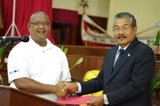 
|
Palauan President declares Blue Ribbon Water Awareness Month and directs development of National Water Policy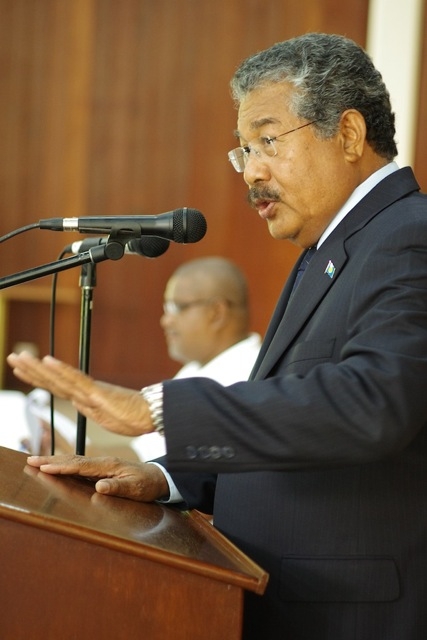 President Toribiong formally proclaimed March 22nd as Palau Water Day, and the following month as Blue Ribbon Water Awareness Month. On 22 March, Palau joined with the global community in celebrating World Water Day at its first ever National Water Summit. The Summit, held at the Ngarachamayong Cultural Centre in Koror, brought together Government officials, traditional leaders and community representatives to acknowledge the importance of Palau’s water resources and identify the priority issues for their management and protection.
In opening the summit, Palau’s President, Johnson Toribiong, noted that the nation is blessed with water resources that have provided its people with clean drinking water and safe sanitation for many years. However, he also warned that, “as the demand on our water supply increases, Palau needs to start thinking of ways to conserve, protect and better manage this vital resource to ensure an adequate supply for current and future generations”
President Toribiong described the Summit as the first step towards creating a national water policy that will “protect and conserve Palau’s water resources for years to come,” and called on participants to actively contribute to its development. “Only by working together can we ensure water forever,” he said.
Most of Palau’s water supplies come from the Ngerikiil Watershed. It supplies about 78% of Palau’s pumped water, but studies have shown that during drought seasons, it is not enough to supply sufficient water to meet the needs of the all the people. This was just one of the issues raised at the Summit, where participants from all walks of life shared their views on the key water issues that should be covered by national policy. Themes explored included security of supply, health, environment, resilience and governance.
A highlight of the Summit was the President’s signing of a proclamation that established the month of March 22 to April 22 as “Blue Ribbon Water Awareness Month.” The blue ribbon represents the slogan “Water for Life,” and will feature around Palau on shirts, banners and even lamp poles.
Protected Areas Network Coordinator, Joe Aitaro, said that the purpose of Blue Ribbon Water Awareness Month is to promote water awareness and to remind people that Palau’s water resources are finite and need protection. “You just can’t overstate the importance of fresh water to a country like Palau,” he said. “The emerging impacts of climate change are even more of a reason why as a nation we need to manage the water we have today, in order to secure our children’s future.”
Two other Micronesian countries, the Republic of the Marshall Islands and the Federated States of Micronesia are also holding National Water Summits this World Water Day, and the findings of these summits will be shared at the upcoming Micronesian Chief Executives Summit in April.
ENDS
Contact:
Gwen Sisior: Palau Water Policy Officer: mobile: (+680) 7799875, email: gsisior07@gmail.com
Dave Hebblethwaite: SPC IWRM Adviser: mobile (+680) 7792731, email: dave@sopac.org
Tiy Chung: SPC Communications Advisor: mobile: (+692) 4563124 email: tiy@sopac.org
|
|
 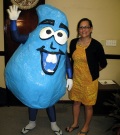 
|
Live Skype Video interview with Mr Ben Graham, National Water Policy Advisor, in the Marshall Islands. The interview was done live from the WaterCube in Cape Town, South Africa to Marshall Islands using Skype. Ben explains why the water issues are so unique to Marshall Islands. by Luuk Diphoorn on 22 March 2011. In collaboration with UN-Water World Water Day |
|
 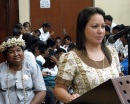 
|
Live Skype Video interview with Ms Deborah Manase, General Manager of the Marshall Islands Environment Protection Authority. Interview was done live from the WaterCube in Cape Town, South Africa to Marshall Islands using Skype. Deborah is also the main point of contact in the Marshall Islands for the Pacific Integrated Water Resources Management Planning Programme. by Luuk Diphoorn on 22 March 2011. In collaboration with UN-Water World Water Day |
|
  
|
Video: Marshall Islands holds first ever Water Summit Majuro celebrated World Water Day with a two day summit focused on water issues including, supply distribution, sustainability and management. |
|
 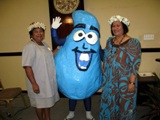 
|
RMI Water Summit ends with a plan to move forward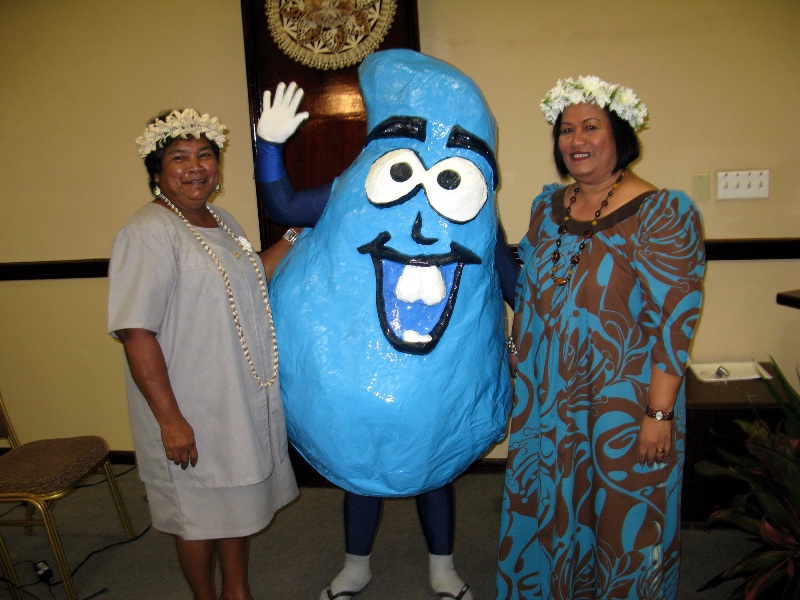 The summit looked at some of the most pressing water issues facing the RMI including: water availability, distribution, quality, and management. Most participants also wanted to know what government is doing to resolve these issues and if there is a plan to better manage water.
The President, His Excellency Jurelang Zedkaia, when opening the summit urged participants to find practical ways to work together to solve water issues and urged all Marshallese to take personal responsibility for this vital resource.
“The challenges relating to water are too big for the government alone to tackle – we can and we must work better together,” President Zedkaia said.
Deborah Manase, General Manager of the RMI Environment Protection Authority, said that she was pleased and impressed by the high attendance at the summit of people from all sectors of government and the community.
“I think the one thing this summit has shown is that water really is an issue that touches everybody and that if we are to come up with a national plan or policy then everybody, not just government, has to take responsibility on how they manage water,” Ms Manase said. “I hope we can now move forward together at all levels of society to protect our water for present and future generations.”
The summit is a first step towards an overarching National Water Policy and as a way to improve awareness at all levels on what the issues are, and what needs to be done to solve them.
“This summit has opened the door and now we all have to walk into the room and sit down to achieve this important goal,” Ms Manase said. “It’s not going to be easy but it is very necessary.”
The First Lady and National Water Champion, Hannah Zedkaia, actively participated in the discussions and breakout groups over the two days of the summit. First Lady Zedkaia worked with other participants to come up with ideas and recommendations on a range of water issues.
“We really appreciate the dedication, commitment and support of First Lady Hannah Zedkaia to water in our country,” Ms Manase said. “Her inspirational work on water will, I believe, help us attain the goals we have put before us.”
Two other Micronesian countries, Palau and the Federated States of Micronesia are also held National Water Summits this World Water Day.
It is anticipated that the National Water Summits will also provide important input at the regional and international level through a solid policy platform and investment plans for water. Summit outcomes are expected to inform the regional initiative to revise the Pacific Regional Action Plan on Sustainable Water Management.
The Micronesian summits were supported by the Secretariat of the Pacific Communities Applied Geoscience and Technology Division (SPC-SOPAC). SPC-SOPAC’s Water and Sanitation Programme provided funding and technical support through the European Union funded Integrated Water Resources Management (IWRM) Planning Programme and also through the Global Environment Facility funded Pacific IWRM Project.
|
|
 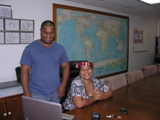 
|
Live Skype Video interview with Ms. Vanessa Konno-Anisin, National Water Policy Officer, Federated States of Micronesia. Interview was done live from the WaterCube in Cape Town, South Africa to Micronesia using Skype. Vanessa's honorific title is: Urupwou Cha from Polowat Island. Vanessa explains what they’ve been doing in Micronesia on World Water Day. by Luuk Diphoorn on 22 March 2011. In collaboration with UN-Water World Water Day |
|
 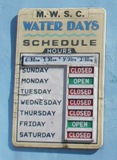 
|
Meeting highlights political will to improve water and sanitation in Micronesia.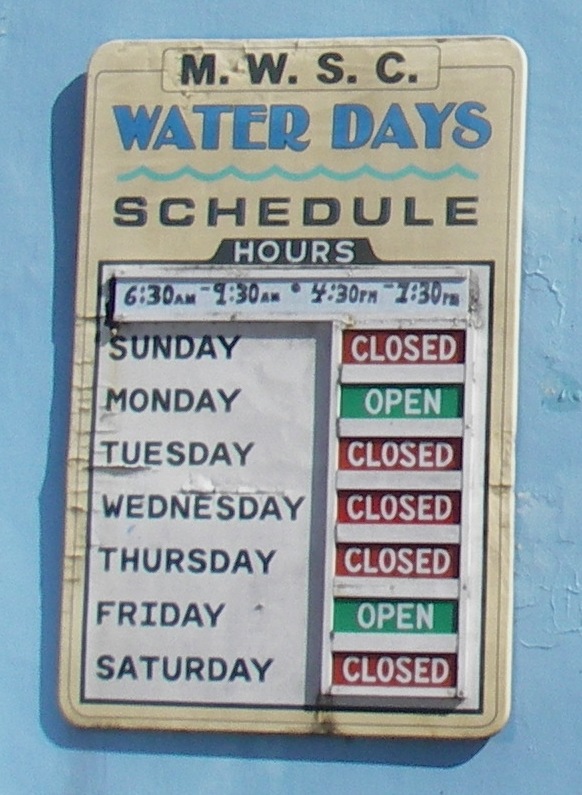 Delegates from Palau, Guam, the Federated States of Micronesia, and RMI gathered to establish a Micronesian Water Committee, as a permanent working group of the Micronesian Chief Executives Summit’s (MCES).
In opening the meeting, RMI’s Acting President, Mr Ruben R. Zackhras, said that the fast pace of urbanization had led to tremendous pressure on demand for water and sanitation and that in many countries water had to go from being an abundant resource to one of scarcity. He also reminded delegates that globally water resources are in crisis.
“The perceived notion of business as usual in the water supply sector is no longer sustainable. The management of water resources should be based on sound policies and strengthened institutional arrangements,” Acting President Zackhras said. “This initiative is a testament that there is political will to improve water sector in Micronesia.”
“We envision that our combined efforts to address water and sanitation in each of our jurisdictions will strengthen cooperation in water resources management and monitoring,” he said.
The meeting was also attended by RMI’s National Water Champion, First Lady Hannah Zedkaia, who has been very active in coordinating the national consultative process on water and sanitation in the Marshall Islands. In speaking to the representatives of the working group First Lady Zedkaia said, “Having been able to sit and listen to the discussions and exchanges, I can now better appreciate and value the importance of the work that each of you must do to improve water and sanitation situations in each of the jurisdictions and the challenges that you face every day.”
The decision to establish a Micronesian Water Committee was made at the 14th MCES in Palau last December.
Deborah Manase, Chair of the Water and Sanitation start up group and General Manager of the RMI Environmental Protection Authority, said that the meeting was a culmination of country driven efforts and a consultative process that was launched at national water summits throughout the region last month.
“This is a very important step for the region as we need to seriously address water issues for both the long term economic development of our countries and for the health and wellbeing of our people,” Ms Manase said. “For many of us the time of taking water for granted is gone. The Committee we are setting up this week will guide how we as a region manage our water well into the future.”
The first Micronesian Water and Sanitation Working Group meeting is supported by the Secretariat of the Pacific Communities’ Applied Geoscience and Technology Division (SPC-SOPAC). SPC-SOPAC’s Water and Sanitation Programme provided funding and technical support through the European Union funded Integrated Water Resources Management (IWRM) Planning Programme and also through the Global Environment Facility funded Pacific IWRM Project.
|
|
 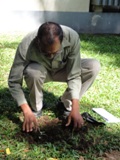 
|
Library services to help empower children become better custodians of the environment. An agreement signed today between Library Services Fiji and the IWRM Demonstration Project aims to motivate and cultivate environmental awareness among young people so they can express their thoughts and opinions on environment and water resource issues.
“We want the youth of Fiji to act responsibly towards sustaining our land and water resources,” said Vinesh Kumar, Nadi IWRM demonstration Project Manger. “Many of the children we work with come from rural communities, they understand that there are consequences between the ways they use natural resources and how it impacts the environment. For example, they understand that if they cut down all the trees in one area they have to walk further to collect firewood.”
“What we want to do is enhance this knowledge, to provide knowledge and solutions, so that young people understand how their actions impact the environment and how they can lessen negative effects to the environment. This partnership with library services will help us do this,” Mr Kumar said. “The library service interacts with schools and interacts with children, together we can work together to help young people become ambassadors and champions of the concept that everyone needs to work together to protect our water and natural resources.”
In signing the agreement, the Director of the Land and Water Resources Management Division, Mr Lakshman Mudaliar, reminded people that water was a finite resource.
“We used to think that whenever we wanted water it would be available. It is time now to realise that water is not an infinite resource,” Mr Mudaliar said. “Children are our hope and the leaders of tomorrow, we hope that through Fiji library services they will understand the importance of water.”
“Through our integrated water resources project we want all stakeholders to come together, work together to ensure that at the end of the day the community does not suffer and that we have a sustainable eco-system that is able to provide for the livelihood for present and future generations,” he said.
Following the signing the group planted trees outside the Western Regional Library in Lautoka, to signify the importance of trees to water protection and the environment.
The Library services will help the Nadi IWRM project run oratory competitions, quizzes, debates and talent quests. It will with the assistance of the Department of Education make contact with the 10 secondary and 33 primary schools in the Nadi Basin catchment area.
“Water is everybody’s business,” Mr Kumar said. “This is one way that various groups are working together to educate people and raise awareness of the issue.”
The GEF IWRM Nadi Basin Demonstration Project is being run through the Secretariat of the Pacific Community’s (SPC) Applied Geoscience and Technology Division (SOPAC). The development of the bus design was supported by the European Union funded IWRM planning programme, also at SPC/SOPAC. It is a part of the Division of Land and Water Resources Management in Ministry of Primary Industries.
Contact:
Tiy Chung, SOPAC Communications Advisor: 998 7586
|
|
 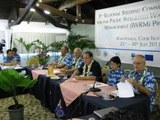 
|
Third Regional Steering Committee for the Pacific Integrated Water Resources Management (IWRM) Project, Rarotonga, Cook Islands, 25-30 July 2011 Welcome Address
Dr Russell Howorth
Director of the Applied Geoscience and Technology Division (SOPAC) of the Secretariat of the Pacific Community (SPC)
Honourable Teariki Heather, Minister of Infrastructure and Planning, Distinguished delegates from the Cook Islands, Representatives of Member Countries, Representatives of donor partners the GEF, UNDP, UNEP, EU, and Representatives of supporting international, regional, and national agencies, colleagues and staff from MOIP and the WSP of the SOPAC Division of SPC.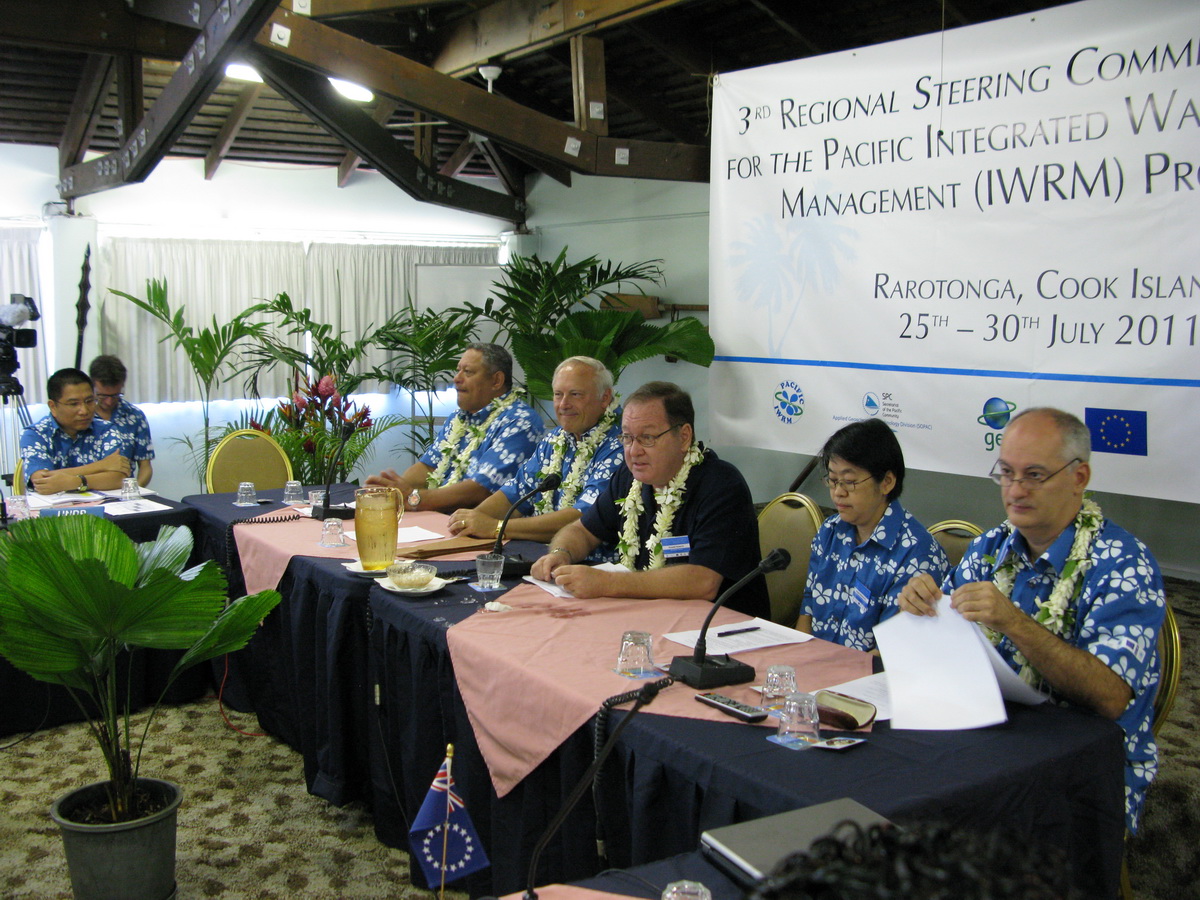 On behalf of Dr Rodgers, Director General of the Secretariat of the Pacific Community, I would like to welcome you all to Third Regional Steering Committee for the Pacific IWRM Project, convened here in Rarotonga.
In doing so I would like to extend on behalf of all of us visiting, some for the first time and some of us like myself visiting yet once again, through you Minister our sincere appreciation to the Government of the Cook Islands for agreeing to host the meeting, and to all the government officials that have worked both here and in conjunction with the SOPAC Division staff in organising this meeting, I would also like to acknowledge the people of the Cook Islands for providing what I know will be the highest level of warmth and hospitality we are accustomed to whilst visiting the Cook Islands.
At the outset, let us not overlook that this community living in the Cook Islands. In their own small way this community represents the principle stakeholder group we are working for in this Project, the Pacific community of people throughout fourteen island countries of the region participating in these IWRM Projects.
.
The work we are here to discuss, and plan a way forward for, represents one of the region’s most critical struggles – the struggle to protect the rights of men, women, boys and girls to safe water and sanitation. All of you have, in various ways, been at the forefront of this endeavour. It does not matter whether we are monitoring progress (or lack of it) against the global MDGs, the regional Pacific Plan or the Regional Water Policies, or National Water Policies and Plans. What does matter is we proceed with implementation to ensure safe water and sanitation services are available for everyone.
For Pacific island countries and territories:
The scarcity of freshwater resources continues to pose several problems in the region. Despite high levels of total rainfall, water is sometimes not available in the high islands due to rainfall seasonality and inadequate storage. Localised pollution, excessive sedimentation due to uncontrolled watershed development and water wastage are common problems reported. Water shortages force some atoll communities to use polluted or salty groundwater for drinking and cooking.
Critically important issues are the protection, conservation, management of supply/quality of water as a result of normal weather patterns and climate variability such as due to El Nino and Enso events. Climate change over the longer time frame is expected to make these issues even more important as frequency and intensity of events are predicted to rise.
Death and disease occur through natural disasters such as cyclones, accelerating storm water runoff, floods, droughts and heat waves, which bring about a reduction in the availability of freshwater and a gradual decrease in water quality. This is especially exacerbated in the Pacific SIDS due to the fragility and vulnerability of the water lenses on atoll islands. Common vector-borne diseases such as malaria and dengue and other major killers such as malnutrition and diarrhoea are also likely to become even more serious if the climate change trends are confirmed over the forthcoming decades.
We together must improve our efforts today in order to be better prepared to cope with the challenges of tomorrow
The period 2006-2011 has seen increased support for, and intervention in the region’s water and sanitation sector. This unprecedented growth has been guided largely by a number of strategic policy instruments including the Pacific Wastewater Policy and Wastewater Framework for Action (2001); the Pacific Regional Action Plan on Sustainable Water Management (2002) and the Pacific Framework for Action on Drinking Water Quality and Health (2005). In 2006 water, sanitation and hygiene challenges facing the region were incorporated into the Pacific Plan. These policy documents are now in need of revision. It is timely to do this as we work towards the World Water Forum in France in March next year and the Third World Summit on Sustainable Development in Brazil in June (the so called Rio+20 Meeting).
In carrying out this important exercise it is key that the actions to address IWRM support to the participating countries, and work of the Pacific Water Partnership on Sustainable Water Management to ensure a more coordinated and strategic approach to water and sanitation activities in the region for the future.
Whilst there has been a period of unprecedented growth in support of water and sanitation activities in the region there remains a real challenge to secure adequate financial resources to continue into the future as many of these activities of necessity ongoing and yet remain project-funded. Sustainability is at risk.
I would like at this stage to extend appreciation first to the GEF and its implementation agents UNDP and UNEP for the ongoing Pacific IWRM Project. In particular I would like to recognise Al Duda the Senior GEF Adviser for the International Waters Focal Area. Al it does seem a long time since we last met but I do recall the seeds for this Project were sown in New York when we first met and convened two meetings with P SIDS Ambassadors.
Secondly I would like to acknowledge the European Union for their support to IWRM through the ongoing Project supporting national planning.
Of course there are other partners but I do appeal to all to be mindful that 2013 will see an end to the current project-funding cycle for many water and sanitation activities. This meeting is therefore key. A strategy for a way forward must start to emerge and I sincerely hope we can look forward to ongoing support from both the GEF and the EU.
It would be remiss of me at this stage not to highlight what I feel are three overlooked challenges both now and for the future:
Increasing the use of rainwater harvesting.
Overcoming the social barriers to the use of composting toilets, especially in areas where valuable freshwater is used for toilet flushing.
During the past year or so since you last assembled as a Regional Steering Committee, much has happened with the regional architecture especially at SPC and SOPAC. As you know, SOPAC is now a division of the SPC, and I will have more to share with you about this matter later in the meeting. Suffice it to say at this moment that this has been a significant change for us, but – and I stress – does not in any regard diminish the new SPC organisation’s commitment to member countries or our ability to support you in your water and sanitation efforts. In fact, it is more and more clear that the merger of SOPAC and SPC has in many ways strengthened our ability to support member countries, and has opened up new opportunities for collaboration – many of which we are still discovering and will continue to discover.
Before I close I would like to take this opportunity to acknowledge some changes in the Water and Sanitation Programme of the SOPAC Division. In particular, the departure of Marc Overmars the former head of the Water and Sanitation Programme. He had been with us for over 10 years and his efforts over the years need to be recognised.
Life must go on, and I am very pleased to advise you that the DG of SPC has very recently appointed Ms Rhonda Robinson as a Deputy Director in the SOPAC Division with responsibility for Water and Sanitation. Rhonda is no stranger to you, she has worked for over ten years on water and sanitation issues, many of those years as an officer in SOPAC. I am sure on behalf of us all I can extend best wishes to her in her new role and the challenges it will bring for her in the years ahead.
In closing I would like to acknowledge that many of you have travelled vast distances to come here, and taken valuable time away from your in-country work. The expense in time and dollars involved in making a meeting like this happen is considerable. But we wouldn't do it if face-to-face meetings like this were not valuable. Especially at this time of planning for the future.
It is up to us all to make sure we well and truly recoup the investment in this week in terms of implementation of improved water and sanitation outcomes in each of your countries. Please use this meeting well. Ask questions, make useful contacts, grill experts, and share your knowledge and experience.
I look forward to spending time with you all individually over the coming week, and wish you every success in your efforts to contribute to securing safe water and sanitation for the people of the Pacific.
|
|
 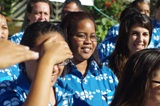 
|
Regional Water experts meet to address Pacific's Water and Sanitation Issues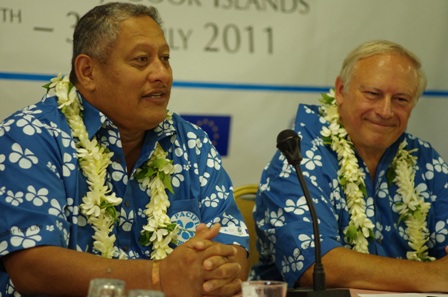 Tuesday, July 26, Rarotonga, Cook Islands: Delegates from Pacific Islands countries gathered in Rarotonga, the Cook Islands today for a week long meeting to discuss the region’s water and sanitation issues. They were reminded that finding solutions to pressing water and sanitation problems was urgent and vital to the future development and health of the Pacific’s people and environment.
“The work we are here to discuss, and plan a way forward for, represents one of the region’s most critical struggles, the struggle to protect the rights of men, women, boys and girls to safe water and sanitation,” said Dr Russell Howorth Director of the Secretariat of the Pacific Community’s Applied Geoscience and Technology Division (SOPAC). “The scarcity of freshwater resources continues to pose several problems for the region. Localised pollution, excessive sedimentation due to uncontrolled watershed development and water wastage are common problems. Water shortages force some atoll communities to use contaminated or salty groundwater for cooking and drinking.”
“Death and disease occur through natural disasters such as floods, droughts and heat waves, which bring about a reduction in the availability of freshwater and a gradual decrease in water quality,” Dr Howorth said. “Over the long term, climate change is expected to make issues even more important as frequency and intensity of events are predicted to rise.”
Dr Alfred Duda, Senior Advisor on International Waters to the Global Environment Facility, congratulated delegates for their efforts so far but urged them to work harder on reforms.
“Are your island states serious about addressing this issue? Are you ready to work with communities and ministers from different sectors to make the investments and reforms needed in water and sanitation?”, Dr Duda asked. “If you’re serious we want to be with you, and work towards solving these problems once and for all for your islands and future.
The GEF is funding a regional and nationally based project to build the capacity of Pacific Island countries to manage water resources. 14 demonstration projects will be run in 13 Pacific countries to show the practical benefits of integrated sustainable water resources and wastewater management.
Dr Duda said that efforts made now by Pacific island governments on institutional and sectoral reform was key to securing to future funding for water and sanitation.
“We place a priority on your island issues. That’s why we can work on water and sanitation issues here. Water supply and sanitation need to be done differently. These reforms that you think are needed, need to be embedded into government institutions,” Dr Duda said. “The more we know about your results the better able we will be to bring your requests for more funding forward.”
According to Dr Duda the demonstration projects being run in the Pacific have global significance as they will inform how countries with bigger basins address water and sanitation issues.
“We’re only now in these large basins getting to the scale where you are. Your success is critical to the GEF international waters area. The reforms are going to be critical.”
In his opening address the Cook Islands Minister for Infrastructure and Planning, the Honorable Teariki Heather, urged all partcipants “to take the meeting as a serious collective effort by Pacific Island Countries”. “Water and sanitation is vital to the quality of life and the economic development of every Pacific island country and it is also a human right.”
“The meeting is timely - as the Cook Islands has tended to in the past neglect water and wastewater of the Pacific Community’s (SPC) Applied Geoscience and Technology Division (SOPAC). management and is witnessing the impacts of this neglect,” Mr Heather said. “I realise the significance of the GEF demonstration projects as a way of showing the way forward and demonstrating on the ground how the current situation can be improved and urge Dr Duda to support future International Waters projects in the Pacific.”
The GEF demonstration projects are being supported in their move towards Integrated Water Resources Management (IWRM) by a European Union (EU) funded IWRM planning programme, based at SOPAC, that is working with countries to develop national planning and water policies based on IWRM principles. The EU has spent €25 million between 2003 and 2008 on the water sector in the Pacific.
“The European Commission together with the EU Member States are aware of the need of assistance to the Pacific region to overcome such challenges, since it takes a collective global effort to make sure that this diverse region experiences sustainable development,” Marius-Adrian Onacea, from the Delegation of the European Commission for the Pacific said. “Under the 10th European Development Fund, 2009 – 2013, the total EU contribution to the same sector increased to almost €36 million. These initiatives intend to contribute to better standards of health and life for their beneficiaries.”
Ms Ampai Harakunarak of the United Nations Environment Programme noted the steady progress of implementation at both national and regional level.
“Such an encouraging level of progress cannot be successfully implemented without strong political commitment of the Pacific countries as well as active engagement of all partners and stakeholders at all levels,” Ms Narakunarak said.
The meeting ends Friday, July 29th.
The regional GEF IWRM Demonstration Projects and EU Planning Programme are run by SPC-SOPAC.
CONTACT: Tiy Chung, SOPAC Communications Advisor (currently in the Cook Islands): (+682) 2833
|
|
 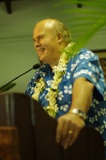 
|
Radio Interviews from RSC 3 Many parts of the Pacific have significant issues with water supply and sanitation and the SPC’s Mark Wilson says they’ve noticed that if they provide guidance and project management Pacific communities can get on top of their water issues.
To listen to the radio interviews, click on the links below: |

















